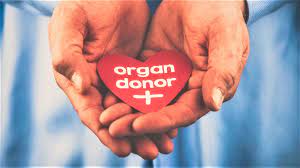‘Why are only 0.01% of Indians consenting to donate their organs after their death?’
New Delhi: Thousands of lives can be improved through organ and tissue transplants, enabling people to live better, and in many cases, survive. So, why are only 0.01% of Indians consenting to donate their organs after their death?
Organ donation is the process of retrieving or procuring an organ legally with the intention of being able to medically help someone in need. Consent is given either by the donor while they’re still alive, or after death by their next of kin. First, the organ is recovered, or “harvested”, before being transplanted into the recipient in need. Organ donation in India is regulated by the 1994 Transplantation of Human Organs and Tissues Act. The Act aims to control the removal, storage, and transplantation of organs and prevents any commercial dealings, while the National Organ and Tissue Transplant Organisation facilitates procurement, allotment, and distribution of organs within India. With a budget of Rs 149.5 crore, the Indian government implemented the National Organ Transplant Programme for promoting organ donation.
Despite the government identifying the need for organ donation, there is a disparity between the huge demand and low supply. Organ donation in India is only just beginning to take off—the reason for the delay being lack of awareness, spiritual belief of life after death, and generally negative attitudes towards organ donation. Donation is encouraged as a charitable act that saves or enhances life; therefore, it requires no action on the part of the religious group.
The Bhagavad Gita Chapter 2:22 describes the mortal body and the immortal soul in a simple way like the relationship of clothes to a body: “As a person puts on new garments giving up the old ones, the soul similarly accepts new material bodies giving up the old and useless ones”, therefore, life after death has nothing to do with organ donation as the old body becomes useless. Holy Qur’an, chapter 5 vs. 32 states: “Whosoever saves the life of one person it would be as if he saved the life of all mankind”, this is a fundamental aim of the Shariah, and Muslims believe that Allah greatly rewards those who save others from death.
India’s Statistical Data as of 2015 shows that in response to the demand for 1.75 lakh kidney transplants, only 5,000 transplants were completed. With 50,000 people dying of terminal liver disease, only 1000 got transplants. These statistics are even more distressing in organs like hearts and lungs. About 0.5 million people in India die every year from causes that could have been prevented by organ transplants that were not available to them. Organ donation rates in India sit at 0.01%, a miniscule figure in comparison to countries like Croatia’s which sits at 36.5% and Spain’s at 35.3%.
One donation from a deceased donor whose brain gave way before their heart can save lives of up to eight people who are suffering from end stage organ failures. If India’s donation rates were to be improved to one donation per million deaths, it would satisfy the country’s organ requirement completely.
The process of pledging is simple. A donor card is provided to a person who is willing to donate the organs after death. Donor cards are not a legally binding document—it is only an expression of a person’s willingness to be a donor. At the time of organ donation, the family of the patient will make the final decision on whether to donate organs or not. Any person willing to donate his/her organs can do so by filling out the donor consent form available on the Ministry of Health and Family Welfare, Government of India website.
Government of India should undertake the responsibility for establishing proper infrastructure all over India to facilitate speedy transport and harvesting of organs. The official paperwork should be more donor-friendly and convenient. The NGOs along with healthcare providers should run their awareness campaigns in a more intensive way, involving print/social and electronic media.
Donation affects more than the donors and the recipients. It affects their families and friends who benefit from their renewed life and improved health after transplant. “Without an organ donor, there is no story, no hope, no transplant. But when there is an organ donor, Life springs from Death, sorrow turns to hope, and a terrible loss becomes a gift.” Let us all come forward and fulfil our duty towards the greater good of humanity by pledging our organs that have the power to save lives after we leave.
(Raghav Khanna is a final year student at Shri Ram College of Commerce, University of Delhi, interning at GMO)

